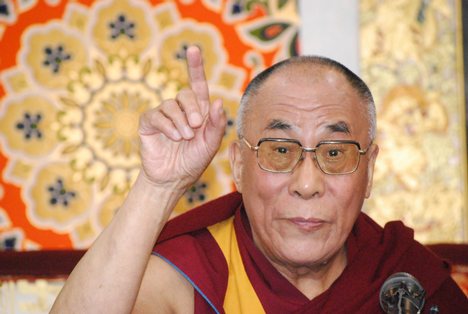Dalai Lama speaks of dilemma on spreading self-immolations
The exiled Tibetan spiritual leader the Dalai Lama has said it is best for him “to remain neutral” on the issue of more than 40 Tibetans setting themselves on fire in the Tibetan areas of China over the past year, amid allegations by Beijing of a plot and concerns among some Tibetans about the spreading protests.
In his most detailed comments yet on the protests, which have brought fresh security restrictions across many Tibetan areas in recent months, the Dalai Lama, in an interview with The Hindu, described the self-immolations as “a very, very delicate political issue.”
“Now, the reality is that if I say something positive, then the Chinese immediately blame me,” he said. “If I say something negative, then the family members of those people feel very sad. They sacrificed their… life. It is not easy. So I do not want to create some kind of impression that this is wrong.”
In an appeal, some Tibetan writers and poets have called for the self-immolations to stop, arguing that Tibetans needed “to cherish life regardless of the magnitude of oppression.”
The Dalai Lama said that for him, “the best thing is to remain neutral.” He called on the Chinese government to “carry thorough research” and “not pretend that nothing is wrong” with its policies.
In a wide-ranging interview in his residence in this hill station on July 6, the day the Tibetan community here grandly celebrated the widely revered exiled leader’s 77th birthday with prayers and songs, the Dalai Lama spoke of the new challenges being faced by the Tibetan movement.
The Dalai Lama, who relinquished his political role last year, said he had expressed to younger Tibetans who were calling for independence and a more radical approach that his “Middle Way” of seeking meaningful autonomy, within the framework of the Chinese Constitution, was “the only realistic way” to address the Tibetan question.
He said he would address the issue of his succession when he turns 90, but cautioned China against “trying to take responsibility for the Dalai Lama’s reincarnation.” “If the Dalai Lama becomes 100 per cent pro-Chinese, then Tibetans will not respect the Dalai Lama.”
He said he perceived “a more realistic position” adopted by the Indian government than in the past on the Tibetan issue, as evinced by its decision to allow the Dalai Lama to visit Tawang, in Arunachal Pradesh, in 2009, despite strong Chinese protests.












